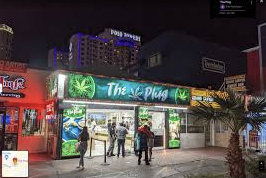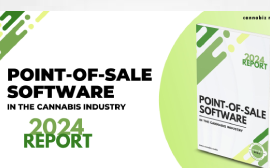First up, before we dive into this story published by Colorado politics let’s remind ourselves of a story we published last month c/- our investigative reporter Teri Buhl.
Sen Coram, lest we forget, is not as pure as the driven snow. Actually, anything but
With this context let’s take a look at what the Colorado Politics website has to say about his decision to withdraw his name from SB205
Intoxicating Hemp And Tetrahydrocannabinol Products
SUBJECTS:
Section 2 of the bill prohibits:
- The manufacture, sale, offering for sale, storage, or delivery of an adult use cannabis product that is not manufactured by a person licensed under the “Colorado Marijuana Code” (license holder);
- The manufacture, sale, offering for sale, storage, or delivery of a product containing industrial hemp that is for human consumption and that is not food, a cosmetic, a dietary supplement, a food additive, an herb, or an over-the-counter drug that contains industrial hemp; and
- The manufacture, sale, offering for sale, storage, or delivery of an industrial hemp product that was not manufactured by a registered wholesale food manufacturer.
Section 3 imposes a civil penalty of up to $10,000 for:
- Manufacturing, selling, offering for sale, storing, or delivering an adult use cannabis product that is not manufactured by a license holder; and
- Violating a permit requirement for industrial hemp products established by rule.
These penalties are credited to the the wholesale food manufacturing and storage protection cash fund.
Section 4 prohibits a political subdivision of Colorado from promulgating or enforcing additional duties for or standards for food safety applicable to premises or places where industrial hemp products are held for distribution, produced, manufactured, packed, processed, prepared, treated, packaged, or transported.
Current law authorizes the department of public health and environment (department) to require permits for manufacturing food that may be contaminated so that it is injurious to health. The department may establish standards for the permits and manufacturing. Section 5 :
- Adds dietary supplements, food additives, cosmetics, and industrial hemp products to this provision;
- Adds that an ingredient that is injurious to health also authorizes the department to require a permit.
Section 6 requires a political subdivision of Colorado to get department approval to perform food safety inspections at facilities used to store, manufacture, produce, pack, process, treat, package, or transport industrial hemp products.
Current law declares industrial hemp products not adulterated unless the product violates certain provisions. Section 7 adds that an industrial hemp product is deemed adulterated if the product is an adult use cannabis product and is not manufactured by a license holder. Section 7 authorizes a wholesale food manufacturing facility to sell, produce, or possess products containing artificially derived cannabinoids only if:
- The facility is registered;
- The product is an industrial hemp product;
- The product is not intoxicating; and
- Prior to distribution and sale, the manufacturing facility has provided the marijuana enforcement division (division) samples and information concerning the product.
Section 9 authorizes the division to promulgate rules, with the technical assistance of the department, to define the amount of one or more tetrahydrocannabinols that results in the designation of a product as an adult use cannabis product. Section 9 also requires the division to promulgate rules to regulate the manufacturing, distribution, and sale of adult use cannabis products as retail marijuana products.Section 10 prohibits a retail marijuana store from offering for sale or accepting an adult use cannabis product that was not properly designated as and transferred to it by a licensed retail marijuana products manufacturer or accelerator manufacturer.Section 11 prohibits a retail marijuana manufacturer from transferring an adult use cannabis product unless the person holds the appropriate license under the “Colorado Marijuana Code”.Section 12 makes it a deceptive trade practice to violate the provisions of the bill that apply to hemp, cannabis, or anything made from hemp or cannabis.
(Note: This summary applies to this bill as introduced.)
PRIME SPONSORS
COMMITTEES
Here’s the Report
A Republican senator has pulled his name from bipartisan legislation seeking to regulate hemp, alleging the bill’s Democratic co-sponsors allowed the legislation to be “hijacked” by the marijuana industry.
As introduced, Senate Bill 205 would have established new definitions for adult use of cannabis products, artificially derived cannabinoid, intoxicating cannabinoid, and tetrahydrocannabinol. The measure would task the Marijuana Enforcement Division in the Department of Revenue to come up with rules that set limits for the amounts of tetrahydrocannabinols (THC) and intoxicating cannabinoids in adult use cannabis products, as well as establish procedures for designating and transferring an adult use cannabis product as a retail marijuana product.
But critics claimed it was a giveaway to the marijuana industry, which would have had total control over the production of intoxicating hemp products, particularly those containing Delta-8 THC.
The bill’s fiscal analysis explained it this way: Delta-9 THC occurs naturally in cannabis and is the main psychoactive ingredient in medical and retail marijuana. Industrial hemp is defined in Colorado law as cannabis that contains a Delta-9 THC concentration of no more than three-tenths of one percent on a dry weight basis. That low content means it’s not considered a Schedule 1 controlled substance.
But now industrial hemp products exist with what’s known as Delta-8 THC, which is synthesized from CBD with the use of solvents and which has psychoactive and intoxicating effects. Those products are not regulated by the state, the fiscal analysis pointed out.
Senate President Steve Fenberg, D-Boulder, a co-sponsor of SB 205, noted during a committee hearing Monday that the conversation on Delta-8 THC products has been going on for a couple of years. He thought the parties had come up with a compromise solution.
But the pushback from the hemp industry indicated otherwise, so he threw out the original bill and replaced it with language allowing the Colorado Department of Public Health & Environment to regulate the products, and a task force will be formed to look at future rules.
The makeup of that committee is what set off Sen. Don Coram, a Montrose Republican, on Thursday during second reading debate on the bill. He offered an amendment to shake up the representation, seeking to put more people affiliated with the hemp industry on the task force.
While Fenberg described what that committee did, Coram stood by his arms crossed.
“It’s not often you find yourself in the situation where your principles are conflicted. That’s what’s happening to me today,” he said.
When the constitutional amendment legalizing recreational marijuana and hemp was passed, Coram and a colleague ran a bill to put hemp under the Department of Agriculture.
“We were adamant that there would be separation between hemp and marijuana,” he said, noting the separation had been maintained from 2013 until now.
Coram said he was pleased to be on a bill regulating Delta-8 and Delta-10. But the bill was hijacked by marijuana, he said.
“You will be told there is an agreement between hemp and marijuana. That’s partially true,” he said, referencing an agreement between Charlotte’s Web, a multi-million dollar hemp company, and the industry. But others in the hemp industry, such as small operators, have been totally locked out.
Phone calls and emails were not returned, Coram claimed. There is no consensus among the hemp industry and marijuana, except for the giant, he said.
He acknowledged there are people in the hemp industry who are straddling the gray line and whose products are showing up in convenience stores.
“I want to get Delta-8 and Delta-10 off the streets, but this is the wrong vehicle because of a lack of representation of the ‘little guy,'” he saiid.
The Coram amendment lost on a division vote.
While he acknowledged the amendments made the bill better, Coram told the Senate he was never involved nor invited to participate in the drafting of the amendments, particularly the one that changed the bill to put the issue under a task force that critics allege is slanted toward the marijuana industry.
“Wait until it happens to you. My principles will not allow me to stand and say ‘it’s okay.’ It’s not okay for a billion-dollar industry to put their foot on the neck of the little farmer just trying to raise a crop,” he said.
Coram then had his name removed as a sponsor from the bill. He told Colorado Politics later that he was not involved with the bill’s original drafting, but wanted to be a co-sponsor because he is committed to dealing with the problems raised by Delta-8 and Delta-10 THC.
But his biggest problem with the bill is “the lack of representation of hemp in the bill itself,” he said. “To put the hemp industry under the control of marijuana – they’re cousins but not kissing cousins. It’s the big bullies of marijuana trying to shut down the hemp industry,” he added.
SB 205 will go to a formal vote in the Senate on Friday and if adopted, heads to the House.




















